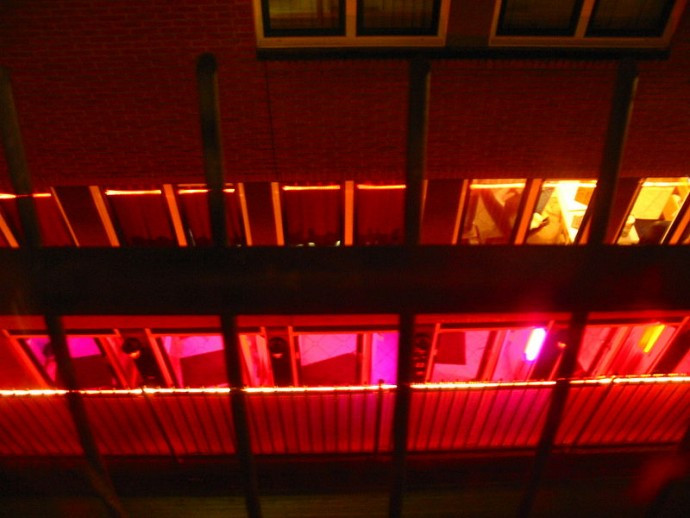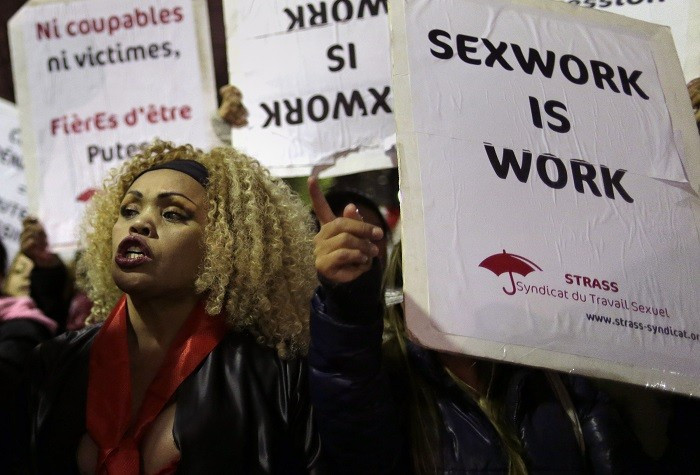Project Rose: Arizona Sex Workers Forced to Choose Between Prison and Church

Sex workers in Phoenix, Arizona, are being handcuffed and taken to church to be given a choice of incarceration or diversion therapy.
The programme, known as Project Rose, has helped over 350 people since it began in 2011, its supporters claim.
Police search the streets for prostitutes and browse the internet for listings. Rather than being immediately arrested, prostitutes are apprehended and given the choice of support services. Arizona's taxpayers fund the scheme, which launches two days of raids each month.
According to Al Jazeera, prostitutes are taken to a windowless church room at Bethany Bible Church, where they are offered housing, healthcare and other support. Although they have not been officially arrested, they are allegedly detained in handcuffs and prohibited from speaking to a lawyer.
If the worker accepts the offer, they avoid prison. Those who have outstanding felony warrants are not eligible for the programme a second time.
Project Rose is organised by Dominique Roe-Sepowitz, the director of the Office of Sex Trafficking Intervention Research and a professor of sociology at Arizona State. She estimates that 35% of the women who enter the programme eventually lead healthy, productive lives - but there is no solid evidence.

Speaking to Al Jazeera, she said: "Once you've prostituted you can never not have prostituted. Having that many body parts, having that many body fluids near you and doing things that are freaky and weird really messes up your idea of what a relationship looks like, and intimacy."
The project has drawn criticism from various groups, for allegedly coercing sex workers into joining the program through the threat of arrest.
Reportedly, prostitutes are faced with local prosecutors and detectives once they have been detained, as well as representatives from the programme.
Jenelle Lovelie, from the Sex Worker Outreach Project (SWOP) in Phoenix, said the scheme was not a viable solution to reducing the number of women involved in prostitution. She explained:
"Project ROSE is not a solution to violence and harm against sex workers. Project ROSE criminalises sex workers and masquerades as a social service project. We need real solutions such as comprehensive rights-based support programs for sex workers in need, and an end to arrests."
Lovelie added that forcing sex workers to concede to the project lacks a "nuanced analysis" of their individual lives. She added: "Many sex workers are consenting adults and do not wish nor need to be rescued. They want rights, an end to police harassment and arrest and to be heard."
In 2013, a study led by the Institute of Medicine and National Research Council stated the solution to sex trafficking was "better collaborative approaches that build upon the capabilities of people and entities from a range of sectors". While Project ROSE aims to avoid the custom of simply criminalising prostitutes, some have suggested the program's religious overtones prevent impartial support.
Speaking to Vice, Monica Jones, a sex worker activist and student, told of how she was arrested by Phoenix police for "manifesting prostitution" after a demonstration outside the church in 2013.
On the day she was arrested, Jones had posted on the sex worker advertising site Backpage.com, warning workers of an imminent raid. On the previous day, she had spoken against Project ROSE at a SWOP rally.
According to Jones, she accepted a ride home from a bar - but was handcuffed after getting into the vehicle. Once in the car, officers referred to her as "it" or "he", as Jones is trans-gender, although her ID lists her as female. Terrified, she agreed to be taken to the church and to the diversion programme.
She revealed she was forced to listen to officers describe girls who started with prostitution who had spiralled into an uncontrollable drug addiction. She was asked to leave early, so her opinions were not taken in by other women on the scheme.
She said: "I wasn't ashamed about being a sex worker. I kept bringing this up during the diversion programme. Girls would ask me why I didn't feel this way. Well, because I don't. I have the right to my own body."
© Copyright IBTimes 2025. All rights reserved.






















